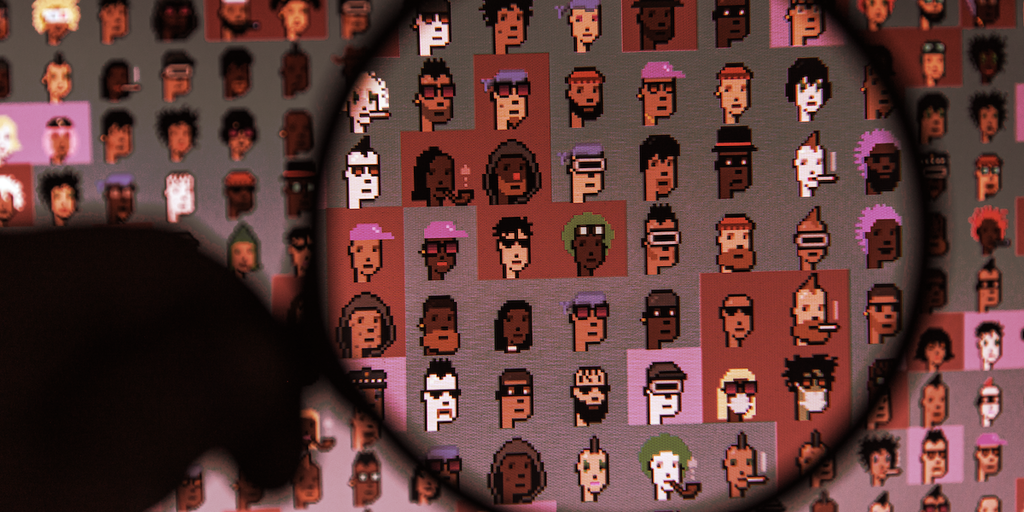Menu
Search
About
Even amid a weakened NFT market over the last couple months, top marketplace OpenSea has retained the dominant position in the space. But that first-mover advantage could come under threat from rivals that are both expanding in number and consolidating.
That’s according to a new industry report from blockchain analytics firm DappRadar, which pointed to the number of NFT marketplaces and aggregators acquired in recent months, potentially setting up what it describes as “looming NFT marketplace wars.”
OpenSea itself made the first big acquisition in recent months, acquiring NFT marketplace aggregator Gem in April. Gem allows users to purchase NFTs in batch buys across multiple platforms, and OpenSea CEO and co-founder Devin Finzer described the move as part of “a need to better serve more experienced, ‘pro’ users.”
Gem will remain an independent platform, however some of its features will also be integrated within OpenSea’s own platform. And OpenSea also recently launched its own Seaport marketplace protocol, which adds advanced features and cuts down on Ethereum gas fees (the costs associated with making transactions on the network).
However, the Gem move may have been the first domino to fall, as a pair of other high-profile acquisitions followed from other major players. In June, Uniswap Labs—creator of DeFi protocol and decentralized exchange Uniswap—acquired Gem’s biggest rival, Genie, which offers a similar feature set.
The move will see the largest DeFi protocol, which enables non-custodial trades between users, now attempt to replicate that success in the NFT space. “These acquisitions will most likely pit OpenSea and Uniswap in direct competition with each other soon,” the DappRadar report surmises.
One day later, online marketplace eBay announced that it acquired KnownOrigin, a long-running NFT marketplace. While not a platform that has put up significant trading volume sums, KnownOrigin gives eBay the potential opportunity to quickly be a player in the NFT space.
An NFT is a blockchain token that can prove ownership for an item, including digital goods like artwork, profile pictures, video game items, and sports and entertainment collectibles. The market generated some $25 billion in trading volume in 2021, per DappRadar, and has already yielded around $20 billion in organic trading so far in 2022 per the latest report.
But the potential for changing tides in the NFT marketplace space is about more than just acquisitions. Newer rivals are also taking hold, including Magic Eden and X2Y2.
Magic Eden currently dominates the Solana space with a market share of 90% or higher, even amid OpenSea’s own push into the Solana market, and recently announced a $130 million Series B raise that values the firm at $1.6 billion. The marketplace is eyeing expansion into other blockchains, and DappRadar says it already accounts for 10% of all NFT transactions.
X2Y2, on the other hand, is an Ethereum marketplace that offers trading rewards to users akin to what LooksRare does, although LooksRare’s model has been criticized for encouraging “wash trading,” or trades between a user’s own wallets at artificially exaggerated prices. X2Y2, per DappRadar’s data, has overtaken LooksRare in terms of trading volume.
Meanwhile, Coinbase’s own NFT marketplace was expected to make waves across the industry, but so far it has apparently struggled to attract traders. A Coinbase representative told Decrypt that it is focusing on social aspects of the marketplace for now. We’ll see over time whether that approach translates into significant on-chain metrics too.
OpenSea has weathered a number of headaches in its rapid rise over the past year, including alleged “insider trading” from a former executive and an exploit that saw some users’ valuable NFTs inadvertently sold for below-market sums. The firm’s recent moves, however, including acquiring Gem and launching Seaport, suggest notable steps forward for the marketplace.
Whether it’s enough to avoid a prospective battle against rising and up-and-coming rivals, however, remains to be seen. But NFTs are still selling, despite falling prices and significantly diminished trading volumes amid the crypto market crash, so there’s still potential opportunity for fierce competition between platforms.

